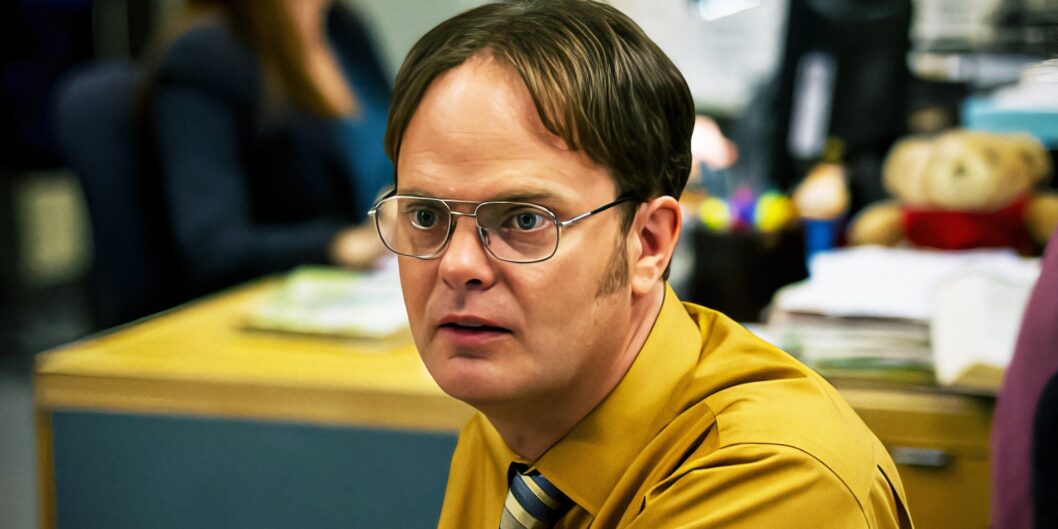The Unraveling of "The Farm": An Insight into the Failed Spinoff of The Office
The beloved sitcom The Office, which aired from 2005 to 2013, remains a cultural touchstone for many viewers. However, its journey to a spinoff faced significant challenges, particularly with the season 9 episode titled “The Farm.” This episode not only failed to resonate with audiences but also effectively halted the planned spinoff of the same name, highlighting how a single installment can impact a show’s legacy.
A Risky Departure from the Familiar
“The Farm” marked a pivotal moment in The Office‘s narrative timeline, shifting the focus from Dunder Mifflin to the rural depths of Pennsylvania and Dwight Schrute’s family. The episode followed Dwight (played by Rainn Wilson) grappling with his Aunt Shirley’s death and introducing viewers to his quirky relatives—Fannie, Jeb, and Cammy. Although it aimed to enrich the lore surrounding the Schrute family, the execution was widely criticized.
Critics labeled “The Farm” as the worst episode of The Office, arguing that the familiar elements that characterized the series were glaringly absent. The humor and interpersonal dynamics that engaged viewers were replaced by underdeveloped characters and a convoluted plot, leaving many fans unsatisfied and disengaged.
The Flawed Conceptualization of a Spinoff
Intended as a backdoor pilot for the proposed The Farm spinoff, the episode did not achieve the desired effect. NBC’s higher-ups reportedly reacted negatively upon viewing the initial footage, which prompted the show’s creators to modify the content and include familiar faces, ultimately producing “The Farm.” Despite these adjustments, the episode received tepid reviews, raising questions about its viability as a standalone series.
It remains unclear why NBC ultimately rejected “The Farm” as a spinoff. Critics’ subsequent feedback on the episode likely mirrored earlier apprehensions. This backlash was compounded by the inherent challenge of comparing the proposed series to The Office, which had established a distinct comedic voice and a repertoire of beloved characters.
Predicting the Spinoff’s Fate
In retrospect, it seems that even if “The Farm” had been successful as an episode, it may still have struggled as a spinoff. The original plan was for Dwight to exit The Office early, altering the series’ dynamic significantly. Such a departure would have left fans longing for continuity while raising concerns about character development and engagement.
The supporting characters introduced in “The Farm” lacked the depth and charisma that made The Office a success. Dwight’s eccentricity was a linchpin of humor in the series, yet in a predominantly rural environment, its viability could have waned. The show’s hallmark absurdity may not have translated well to the quieter, more grounded premise of the farm.
Significance in the Office Legacy
The rejection and subsequent treatment of “The Farm” illustrate broader themes in television production regarding audience expectations and character attachment. The Office not only serves as a reminder of the fine line between innovation and miscalculation but also emphasizes how the departure from familiar settings can alienate loyal fans.
However, this experience has not deterred the creators of The Office. A new spinoff titled The Paper is in the works, although it will forgo Rainn Wilson’s Dwight Schrute in favor of Oscar Martinez, played by Oscar Nuñez. This move signals an opportunity for fresh narratives while retaining a connective thread to the highly regarded original series.
Conclusion: A Legacy Preserved
Though The Farm episode faced a critical backlash and marked a failed attempt to launch a spinoff, it ultimately underscores The Office’s richness in storytelling and character dynamics. Fans may find solace in the knowledge that the original series remains cherished, with ongoing developments promising a renewed connection to the beloved universe of Dunder Mifflin. The industry continues to adapt and evolve, making way for new narratives while honoring the legacy of past successes.









